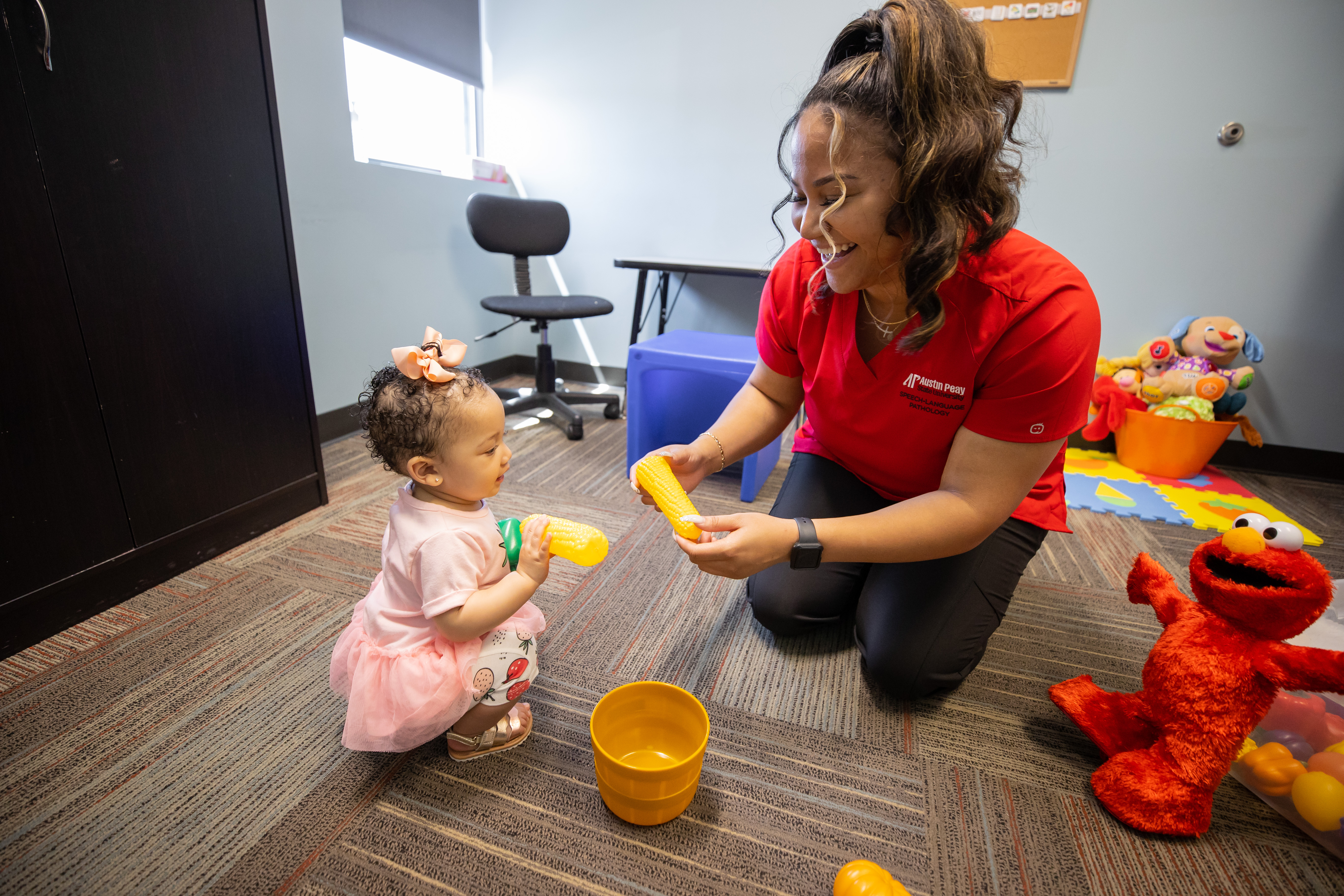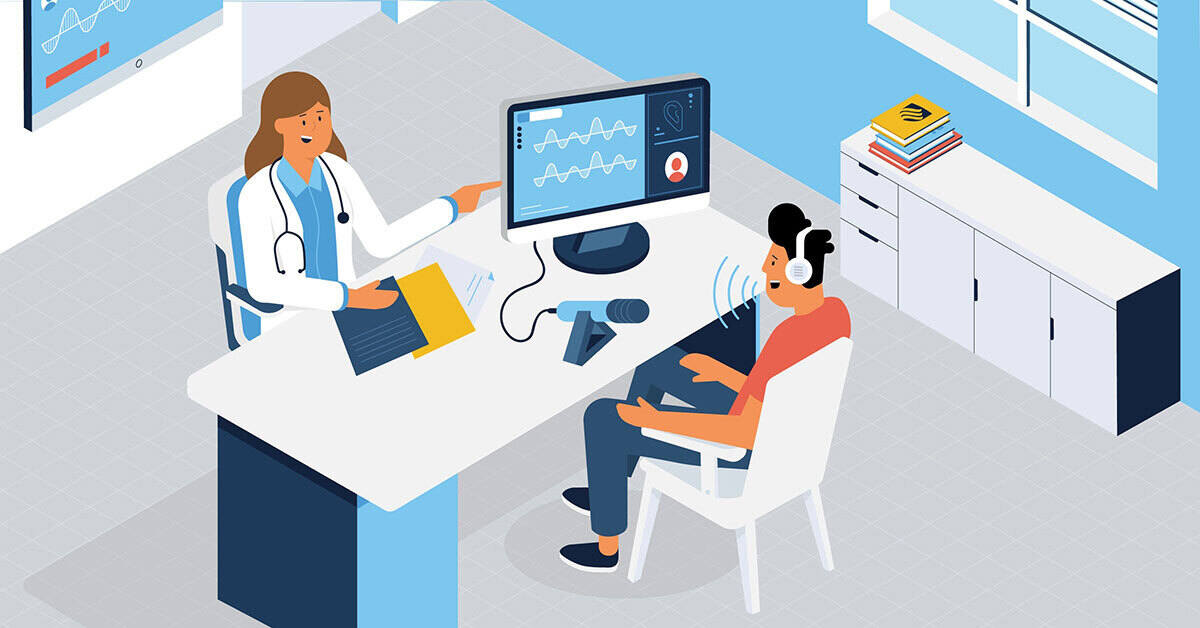Signs That Suggest You May Need a Speech Pathologist for Therapy
Signs That Suggest You May Need a Speech Pathologist for Therapy
Blog Article
How a Speech Pathologist Can Help Improve Communication Skills
Efficient communication is a foundation of individual and specialist success, yet several people encounter challenges that hinder their capability to reveal themselves plainly. A speech pathologist is outfitted to address these obstacles via targeted analysis and treatment approaches customized per person's requirements. By utilizing evidence-based restorative techniques, they not only function to boost speech and language problems yet additionally boost general communicative capability. Recognizing the multifaceted role of a speech pathologist reveals how their knowledge can transform lives, inviting a closer exam of the certain techniques and outcomes related to their practice.
Comprehending Communication Problems
Comprehending communication problems is necessary for recognizing just how they affect individuals' capacity to express themselves and engage with others. Communication problems encompass a vast array of problems that influence speech, language, and social communication, typically hindering efficient interaction. These disorders can occur from numerous factors, including neurological problems, developing delays, physical disabilities, or emotional issues.
Speech conditions might show up as difficulties in voice, articulation, or fluency manufacturing, influencing how words are noticable or talked. Language problems, on the other hand, involve difficulties in understanding or utilizing language, which can restrain both spoken and non-verbal communication. Social communication problems are identified by difficulties in the pragmatic aspects of communication, such as taking turns in discussion or understanding social signs.
The consequences of communication disorders are profound, affecting not just the person's ability to communicate ideas and feelings yet additionally their social relationships, educational opportunities, and general high quality of life. Recognition of these disorders can foster empathy and assistance, encouraging effective techniques for communication and engagement. Understanding the complexities of interaction disorders is a critical action in the direction of advertising inclusivity and addressing the needs of those affected.
Role of a Speech Pathologist
Speech pathologists regularly play a vital duty in treating and identifying interaction conditions, using a variety of evidence-based strategies customized per individual's requirements. These specialists collaborate with individuals throughout the life-span, from children with speech hold-ups to grownups recovering from strokes or distressing mind injuries. Their experience incorporates a selection of interaction concerns, including expression, voice, fluency, and language conditions.
In therapeutic setups, speech pathologists make use of organized interventions made to boost interaction skills. They might carry out techniques such as speech exercises, language games, and social interaction training to assist in enhancements in responsive and expressive language capabilities. Speech Pathologist. Furthermore, they educate customers and their family members concerning efficient communication strategies and adaptive techniques to navigate day-to-day interactions
Beyond straight therapy, speech pathologists team up with other medical care teachers, caretakers, and specialists to ensure a detailed strategy to treatment. They promote for customers by giving resources and support, allowing people to attain their interaction goals and enhance their total lifestyle. As experts in the field, speech pathologists are necessary in cultivating effective communication, promoting freedom, and boosting social engagement for those with communication challenges.
Evaluation and Diagnosis Refine
The analysis and medical diagnosis process conducted by speech pathologists normally entails a comprehensive assessment to determine communication conditions precisely. This process begins with an in-depth medical history, where the medical professional gathers essential details concerning the person's medical, educational, and developmental background. Recognizing the context of the individual's communication problems is vital for an exact medical diagnosis.
Adhering to the medical history, speech pathologists use informal assessments and standardized tests to examine different facets of interaction, consisting of speech audio production, language understanding, meaningful language, and social communication abilities. These analyses are tailored to the individual's age and specific concerns, supplying important data for evaluation.
Monitoring is also a critical component of the assessment process, as it enables the medical professional to see direct how the individual connects in all-natural settings. In addition, meetings with member of the family and teachers can supply insight right into the individual's communication obstacles throughout different environments.
As soon as the examination is total, the speech pathologist synthesizes the searchings for to figure out a medical diagnosis and suggest appropriate treatments. This complete assessment procedure makes certain that individuals receive targeted assistance tailored to their unique communication needs, laying the structure for reliable restorative strategies.
Restorative Strategies and Methods
Various therapeutic strategies and methods are employed by speech pathologists to address a range of interaction problems effectively. One widely used approach is articulation therapy, which concentrates on correcting speech sounds with repeating and learn the facts here now aesthetic signs. This read review technique is particularly valuable for people with speech sound disorders.
One more efficient method is language treatment, which boosts both receptive and expressive language skills. This may involve interactive activities that promote vocabulary advancement, sentence structure understanding, and conversational skills. Furthermore, speech pathologists commonly make use of social abilities educating to improve pragmatic language abilities, enabling individuals to navigate social interactions more successfully.
Fluency shaping and stuttering modification techniques are specifically designed to assist those experiencing fluency problems. These strategies aid customers establish smoother speech patterns and handle the physical and emotional components of stuttering.
Furthermore, alternative and augmentative communication (AAC) systems are used for people with serious communication disabilities. These systems, which can include gestures, symbols, or electronic devices, give crucial support for reliable interaction.
Benefits of Speech Treatment

Furthermore, speech therapy can help in establishing important listening and comprehension skills, fostering better interaction in discussions. People with cognitive-communication conditions can also profit, as treatment concentrates on strengthening memory and analytic capacities, vital for reliable interaction.
Another critical facet is the emotional support supplied during treatment sessions. Speech pathologists develop a secure environment, encouraging patients to get over anxiousness and aggravation relevant to their communication problems. This support can cause enhanced self-esteem and general mental wellness.
Additionally, early treatment through speech treatment can prevent additional complications, making certain that individuals reach their complete communicative potential. Generally, the benefits of speech therapy expand beyond simple speech improvement, positively influencing various measurements of life for those affected by communication troubles.
Conclusion
In summary, speech pathologists play a crucial function in resolving communication conditions via assessment, diagnosis, and customized healing interventions. By utilizing evidence-based strategies, these professionals improve people' speech and language capacities, fostering enhanced quality, fluency, and social communication skills. The advantages of very early treatment underscore the significance of seeking help from speech pathologists, as their knowledge can dramatically enhance communicative potential, eventually causing better success in both personal and professional balls.

Speech pathologists frequently play a crucial duty in dealing with and diagnosing interaction disorders, utilizing an array of evidence-based techniques customized to each person's needs. As professionals in the field, speech pathologists are crucial in promoting reliable communication, advertising freedom, and enhancing social involvement for those with interaction obstacles.

Report this page